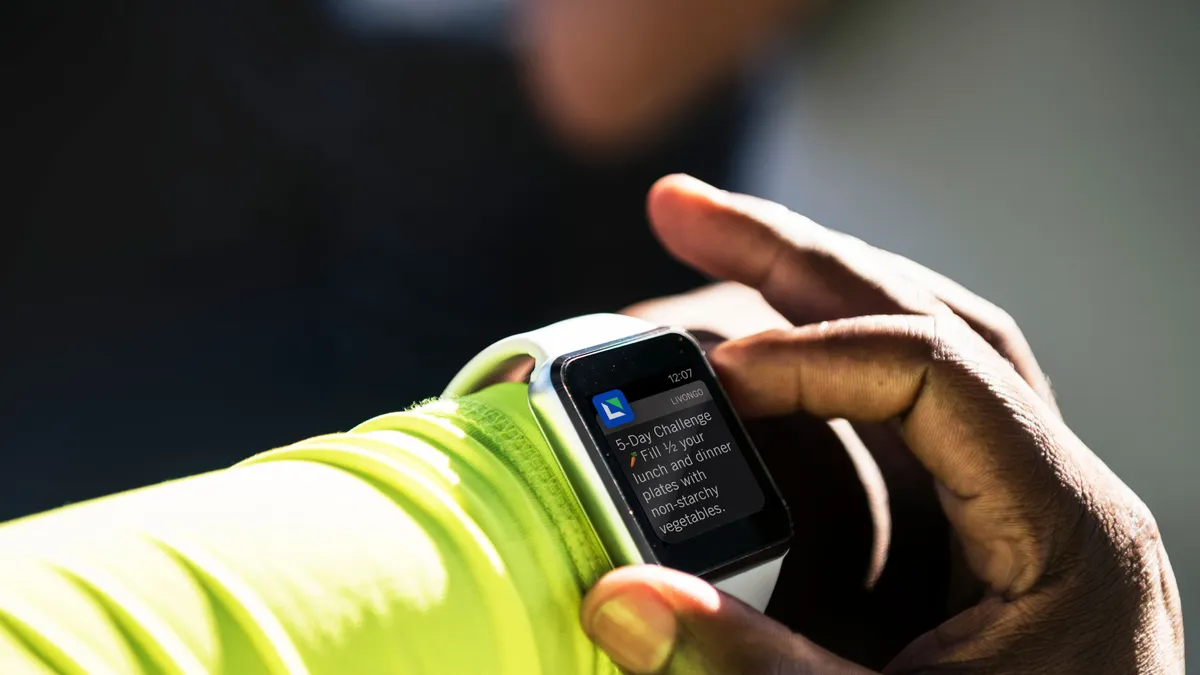Dive Brief:
- Apple and pharmaceutical giant Eli Lilly are conducting joint research to see whether health features on the iPhone and Apple Watch can detect evidence of dementia and cognitive decline. The two companies, along with health tech startup Evidation, found promising initial results but concluded additional research is needed.
- The early-stage, 12-week study included 31 people with various stages of cognitive impairment and an 82-person healthy control group. Researchers collected 1.5 gigabytes of data per participant per day, including data on motor function and sleep rhythms.
- People with symptoms of cognitive decline showed slower typing, less regularity in schedules, fewer text messages and greater reliance on helper apps such as the Clock app than their healthy counterparts.
Dive Insight:
The partnership between the tech giant and the pharmaceutical company, although tenuous, illustrates how boundaries continue to blur between the traditional healthcare industry and outside players.
Dementia, which affects roughly 47 million people across the globe, costs $1 trillion worldwide, according to the World Health Organization. Early testing for the condition is sporadic and, when conducted, it's often not sensitive enough to detect early stages of mental decline, creating an opportunity for tech companies like Apple to see whether they can turn a profit.
The "rich, longitudinal information" from wearable and mobile consumer devices can be "mined for physiological and behavioral signatures of cognitive impairment and provide new avenues for detecting [mild cognitive impairment] in a timely and cost-effective manner," researchers wrote in the paper. The team included five authors from Apple, five from Eli Lilly and five from Evidation.
Data was collected from a slew of platforms including an iPhone, Apple Watch, iPad and a Beddit sleep monitoring device, then stored on a HIPAA-compliant Evidation platform. Researchers had access to the data through a secure network called a VPN before modeling. Apple bought sleep tracking company Beddit in May 2017.
The initial results are promising, but researchers stressed they're only a "starting point" for further studies on using the consumer gadgets to predict cognitive decline, which includes Alzheimer's disease.
The Apple Watch already has a slew of health features, including menstrual cycle tracking and heart rate and EKG monitoring. Although the company stresses the wellness and preventive care benefits of the tech, early results are mixed.
It's's unclear whether wearables like the Apple Watch or popular fitness tracker Fitbit really improve the health of their owners, but a number of payers are offering the tech to their beneficiaries. The list includes CVS-owned Aetna and potentially a number of privately-owned Medicare Advantage plans.
Additionally, as the site of care moves increasingly to the home, sensors that predict falls, monitor voice quality for sickness, and (potentially) screen for dementia could be lucrative for manufacturers and other healthcare players.












